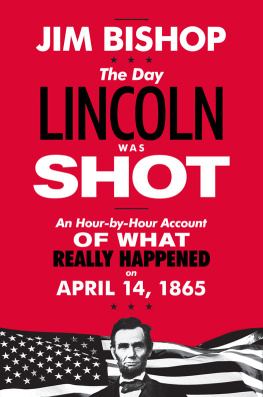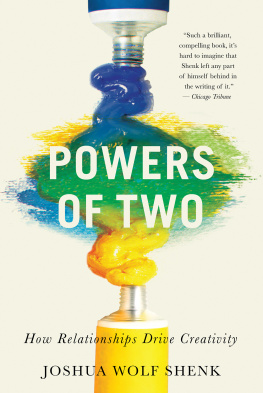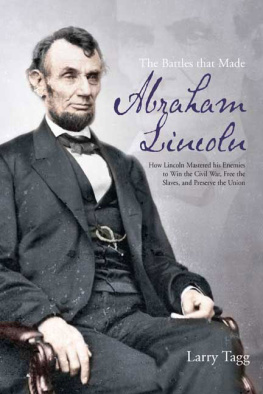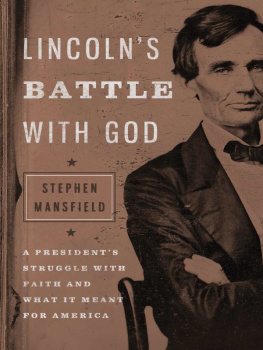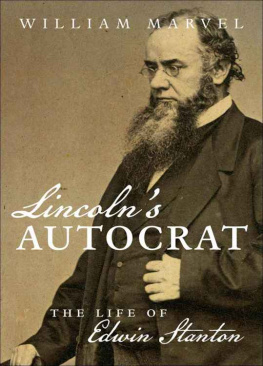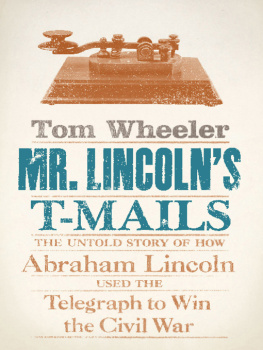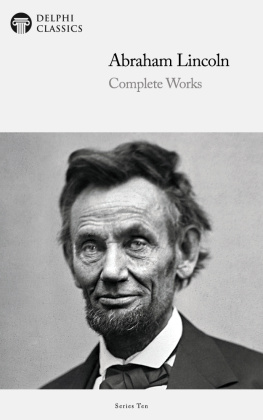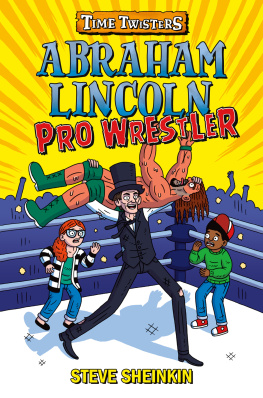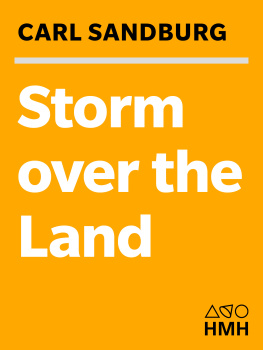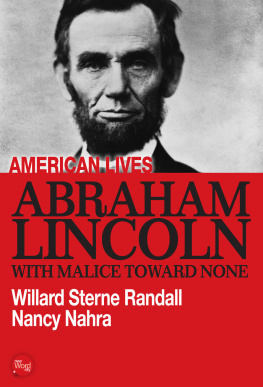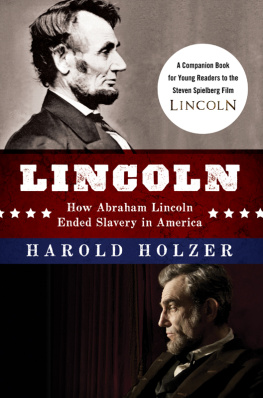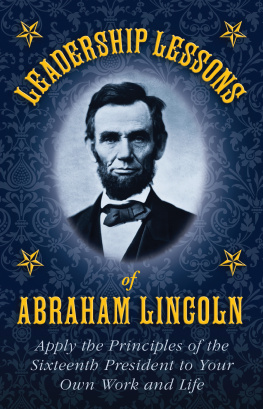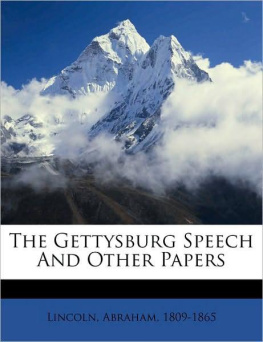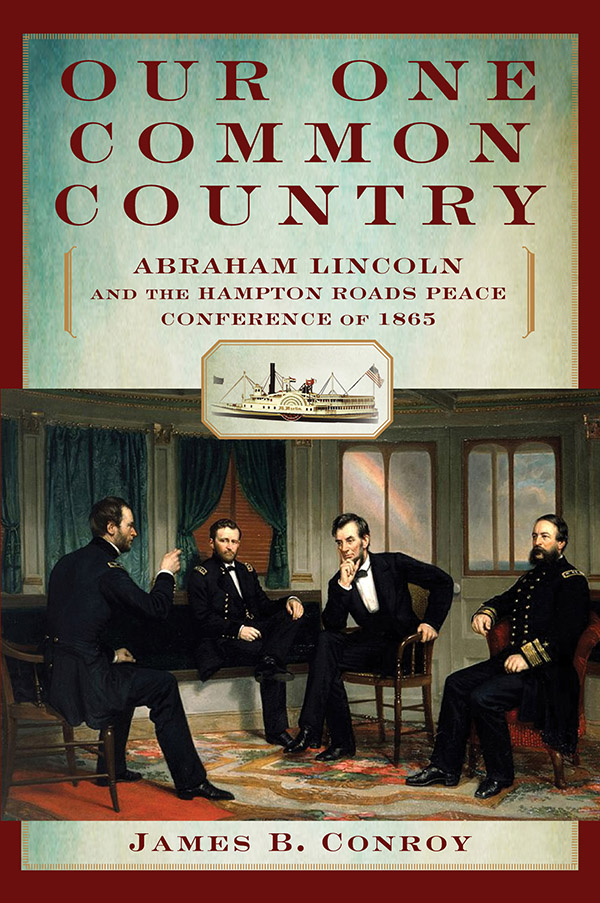O UR O NE C OMMON C OUNTRY
O UR O NE C OMMON C OUNTRY
Abraham Lincoln and the Hampton Roads Peace Conference of 1865
J AMES B. C ONROY
Copyright 2014 by James B. Conroy
ALL RIGHTS RESERVED. No part of this book may be reproduced or transmitted in any form by any means, electronic or mechanical, including photocopying and recording, or by any information storage and retrieval system, except as may be expressly permitted in writing from the publisher. Requests for permission should be addressed to Globe Pequot Press, Attn: Rights and Permissions Department, PO Box 480, Guilford, CT 06437.
Lyons Press is an imprint of Globe Pequot Press.
Project editors: Meredith Dias and Lauren Brancato
Layout: Melissa Evarts
Library of Congress Cataloging-in-Publication Data
Conroy, James B.
Our one common country : Abraham Lincoln and the Hampton Roads peace conference of 1865 / James B. Conroy. pages cm
E-ISBN 978-1-4930-0410-2 (ePub)
1. Hampton Roads Peace Conference (1865) 2. United StatesHistoryCivil War, 1861-1865Peace. 3. Lincoln, Abraham, 1809-1865. I. Title.
E469.C66 2014
973.7'38dc23
2013016670
To my wife and children, with love and gratitude
In memory of my grandmother
Contents
It is impossible to say precisely when the conviction became general in the South that we were beaten. I cannot even decide at what time I myself began to think the cause a hopeless one, and I have never yet found one of my fellow Confederates, though I have questioned many of them, who could tell me with any degree of certainty the history of his change from confidence to despondency. We schooled ourselves from the first to think that we should ultimately win, and the habit of thinking so was too strong to be easily broken by adverse happenings. Having undertaken to make good our declaration of independence, we refused to admit, even to ourselves, the possibility of failure.
G EORGE C ARY E GGLESTON
V ETERAN OF THE A RMY OF N ORTHERN V IRGINIA
Postwar Manhattan newspaperman
These men are to be punished for their crimes; they are to be punished for their barbarities; they are to be punished as traitors and murderers, and not welcomed back into the social circle or legislative halls by any loyal man who now stands by this Government, in my estimation.
Z ACHARIAH C HANDLER OF M ICHIGAN ON THE F LOOR OF THE U NITED S TATES S ENATE, A DDRESSING THE C ONFEDERATE L EADERS F ATE ON THE E VE OF THE H AMPTON R OADS P EACE C ONFERENCE
Cast of Principal Characters
Northerners
FRANCIS PRESTON BLAIR SR.
Longtime Washington powerbroker, cofounder of the Republican Party, Virginia-born and Kentucky-bred; a Lincoln loyalist and an ardent enemy of Secretary of State William Sewards.
MONTGOMERY BLAIR
Lincolns postmaster general and conservative adviser before the Radical Republicans forced his resignation in September 1864; irascible eldest son of Francis Preston Blair.
ORVILLE HICKMAN BROWNING
A friend of Lincolns, a partner in James Singletons presidentially authorized business trips to the South, and a former senator from Illinois, defeated for reelection in 1862.
SAMUEL S. (SUNSET) COX
An Ohio congressman and a moderate War Democrat.
CHARLES DANA
Assistant Secretary of War under Edwin Stanton; a former journalist at Horace Greeleys New York Daily Tribune .
THOMAS ECKERT
Union Army major in charge of the military telegraph; one of Secretary of War Edwin Stantons closest aides.
JULIA DENT GRANT
The Missouri-born wife of Ulysses S. Grant.
ULYSSES S. GRANT
General in Chief of the United States Army.
HORACE GREELEY
Eccentric Republican editor of the New York Daily Tribune, a leading abolitionist, and one of the Norths most influential opinion leaders.
JOHN HAY
Along with John Nicolay, one of Lincolns two permanent live-in secretaries.
ELIZABETH BLAIR LEE
Daughter and aide of Francis Preston Blair, known as Lizzie.
ABRAHAM LINCOLN
President and commander in chief of the United States.
GEORGE G. MEADE
Major general in command of the Army of the Potomac; defeated Lee at Gettysburg.
SAMUEL NELSON
A United States Supreme Court justice from New York; Judge Campbells friend and former colleague.
JOHN NICOLAY
Along with John Hay, one of Lincolns two permanent, live-in secretaries.
EDWARD ORD
Major general in command of the Army of the James; a close friend of Grants.
DAVID DIXON PORTER
One of the US Navys leading admirals.
HENRY J. RAYMOND
Founder, publisher, and editor of the New York Times; chairman of the Republican National Committee, a leader of its moderate wing, a loyal Lincoln supporter.
WILLIAM H. SEWARD
Lincolns Secretary of State and closest adviser; former governor of New York, US senator, and presidential hopeful; a participant in the Hampton Roads Peace Conference.
WILLIAM TECUMSEH SHERMAN
Major general in command of the Unions western armies; pioneer in the art of scorched-earth warfare.
JAMES L. SINGLETON
Copperhead friend of Lincolns, who endorsed his entrepreneurial buying trips to Richmond and exploited his ability to gain access to its leaders.
EDWIN M. STANTON
Lincolns remorseless Secretary of War; an old-time Democrat and a native of Ohio.
THADDEUS STEVENS
Radical Republican congressman from Pennsylvania, the aging but powerful chairman of the House Ways and Means Committee; a longtime scourge of the South.
CHARLES SUMNER
Radical Republican senator from Massachusetts, a leading abolitionist, beaten with a cane on the Senate floor by a South Carolina congressman in 1856; Lincolns frequent critic.
THURLOW WEED
Sewards political mastermind, an Albany-based editor and Republican Party boss.
GODFREY WEITZEL
Young major general in command of the occupation of Richmond after its fall.
GIDEON WELLES
Lincolns avuncular Secretary of the Navy; a Blair ally and a Seward rival.
FERNANDO WOOD
A former mayor of New York, now a pro-Southern peace Democrat in Congress.
Southerners
JUDAH BENJAMIN
Jefferson Daviss Secretary of State and closest adviser.
JOHN C. BRECKINRIDGE
Former vice president of the United States, close to the Blairs, a Confederate major general, then Confederate Secretary of War.
JOHN A. CAMPBELL
The Confederacys Assistant Secretary of War; a former justice of the United States Supreme Court; a member of the Confederate peace commission at Hampton Roads.
ARTHUR S. COLYAR
A Confederate congressman from Tennessee, a fierce Davis critic, a Unionist before the war; an early advocate of peace negotiations.
JEFFERSON DAVIS
President and commander in chief of the Confederate States of America.
VARINA DAVIS
The wife of Jefferson Davis.
HENRY S. FOOTE
A volatile Confederate congressman, former governor of Mississippi, and former US senator; Jefferson Daviss career-long nemesis; a leader of the Southern peace movement.
JOSIAH GORGAS
The Confederacys Richmond-based, Pennsylvania-born Chief of Ordnance.
WILLIAM A. GRAHAM
Moderate Confederate senator; former governor of North Carolina and former US senator.
WILLIAM HATCH
A Confederate lieutenant colonel and Assistant Commissioner of Exchange; the peace commissioners aide.


